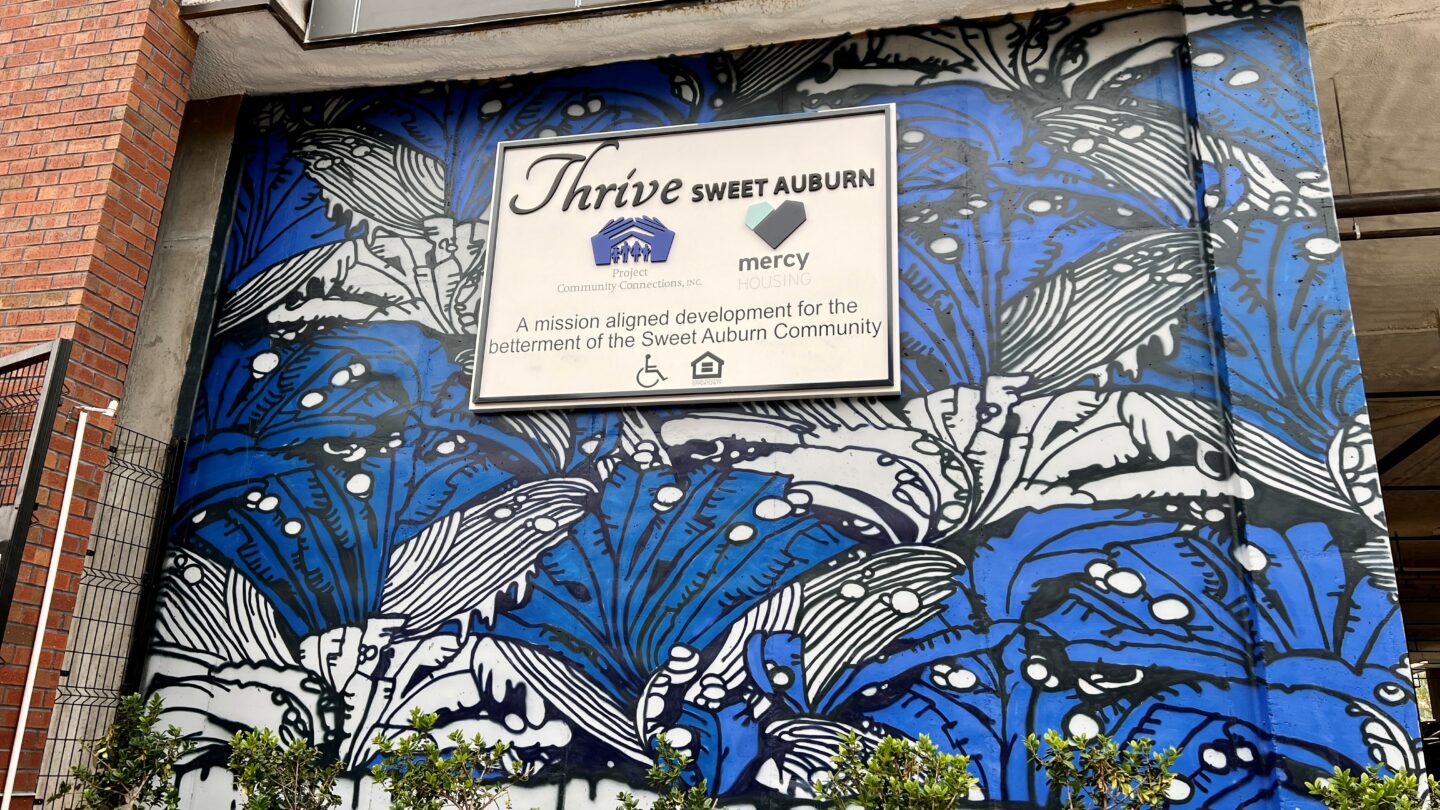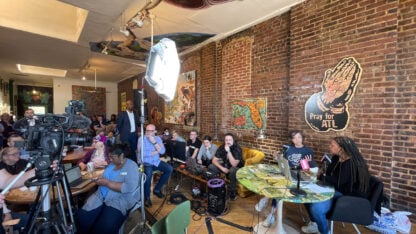New community center housing people dealing with homelessness opens in Atlanta

The Thrive Sweet Auburn Center sits at 302 Decatur Street. The area is known for its rich history and ties to the Black community.
The facility is a collaborative project between Mercy Housing Southeast and Project Community Connections Inc. (PPCI). It was built as a one-stop shop to help house individuals, families and veterans dealing with homelessness.
Jimiyu Evans is the co-CEO of PPCI and served as one of the developers for the project. Evans says Thrive Sweet Auburn answered one of Atlanta’s growing problems — housing affordability.
“It was getting harder by the day to find housing for people who are experiencing homelessness,” Evans said. “[And] that’s our always our first goal to get people into safe, permanent places to live. So why not build our own?”
Thrive Sweet Auburn features 117 affordable units, with 23 specifically set aside for families and veterans needing permanent housing. The apartments range from studios to 3 bedrooms on the upper levels of the building, with some units made ADA accessible.
Officials with Mercy Housing say the center is “service-enriched,” offering housing plus several other on-site resources like job referrals, opportunities and access to medical care.
Amelia Nickerson is the CEO of First Up Staffing. Nickerson believes having an in-house employment agency at the center would help occupants who deal with rejection regularly.
“It’s a number of barriers … maybe it’s a current period of homelessness or a long-term period of unemployment, maybe it’s a criminal background,” Nickerson said. “We actually hire that individual, and then just work to find them locations to work that are going to be open to some of those backgrounds.”
Adrian Fields is the Director of the Office of Community Planning and Development of HUD for the Atlanta Regional Office. Fields believes the center is an example that will lead to addressing a more extensive national issue.
“The challenge remains even greater on how to expand affordable housing and needed support in an economy where the cost of rent outpaces minimum wage, and the availability of affordable housing stock is very limited,” Fields said. “We have unprecedented resources in our community that needs to be used creatively right now to address the ills of homelessness and boost the affordable housing stock nationwide.”
PPCI officials say the center, though first of its kind, should be the model for other organizations in the fight to end homelessness.
The center is expecting its first move-ins around late May to early June.








